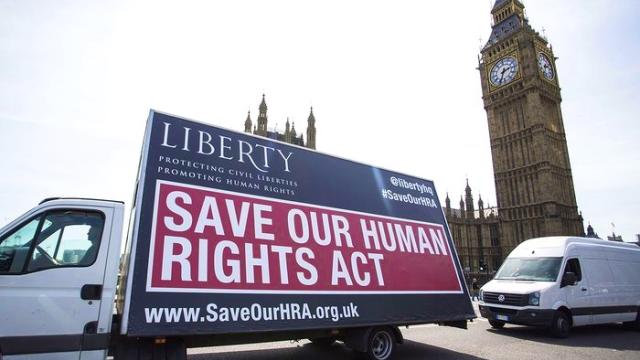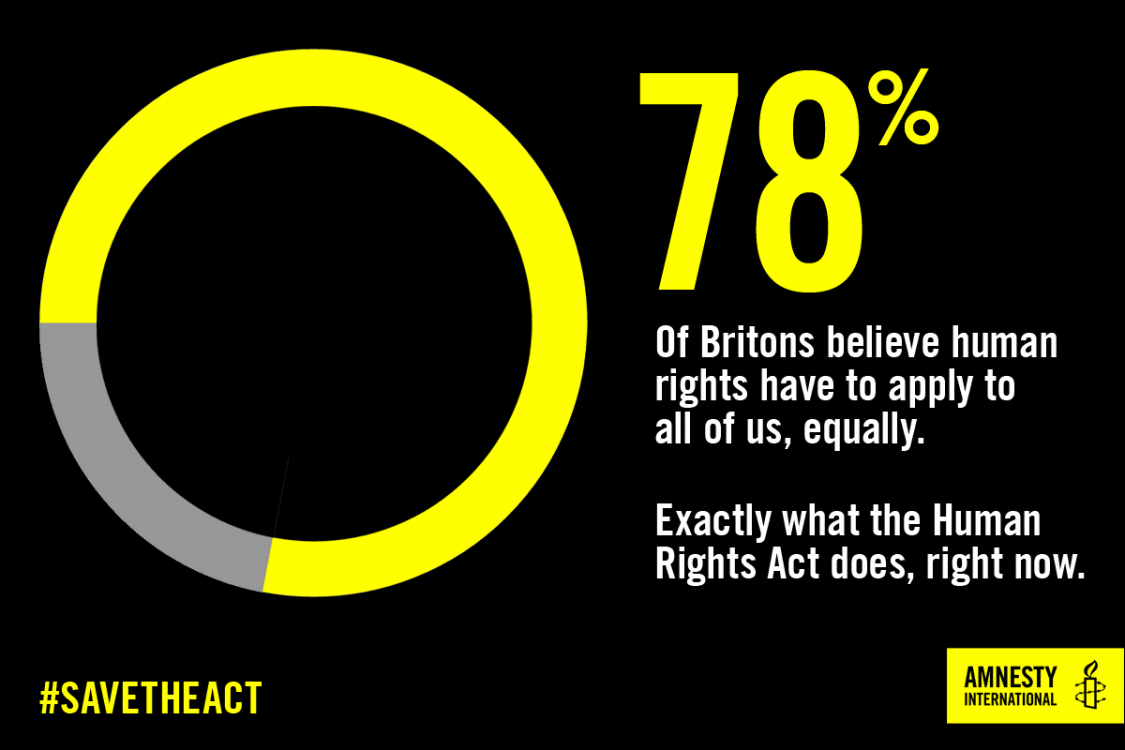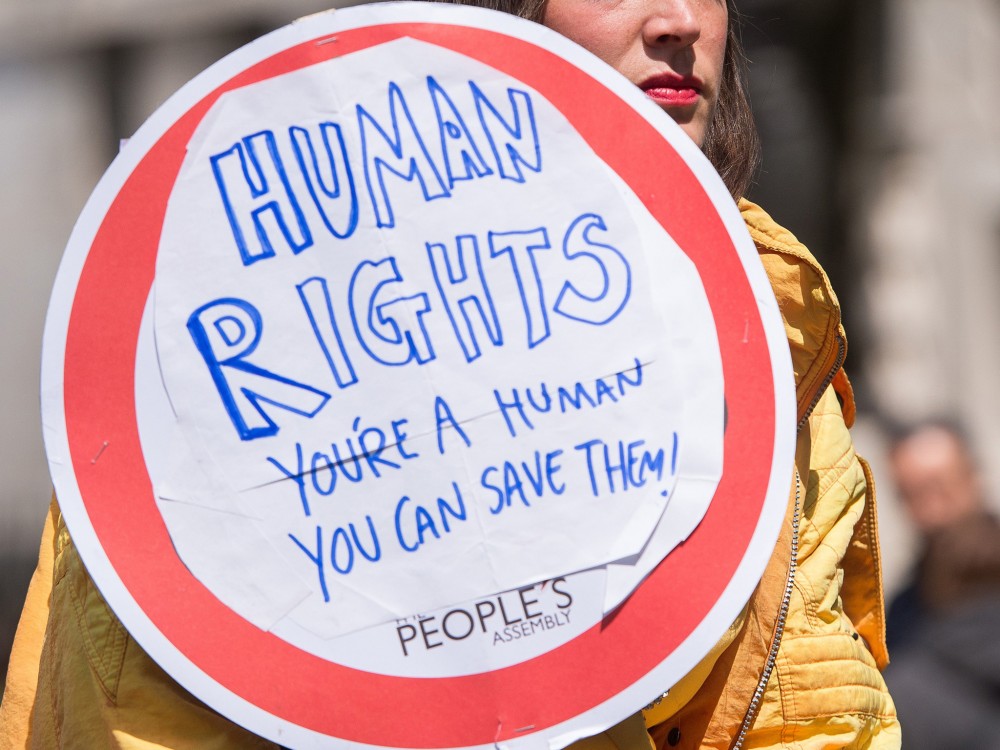
If it were not for the U.S. election season, the big news on most people’s lips in the United Kingdom would be the push towards repealing the Human Rights Act (HRA). The new Conservative government plans to implement the promise made in the Conservative Party Manifesto 2015 to repeal the HRA and replace it with a Bill of Rights. Now, many are questioning what will ultimately safeguard Britain's "fundamental rights and freedoms" if the repeal takes place.
Some people argue about the extent to which U.K. citizens will still enjoy the same protections they receive under the HRA. It's fairly safe to say that if the U.K. government under Prime Minister Teresa May is serious about repealing the HRA, whatever it puts in its place will be something quite different. That is, after all, the sensible conclusion to draw from the social, political, economic and legal spectacle that was the Brexit vote.
When the U.K. voted last summer by a slim majority to leave the European Union, it was widely portrayed as a triumph for "the People." Autonomy would once again rest in the hands of the People. There would be no more pesky intrusion by the rest of Europe. But what about those protections that save U.K. citizens from the pesky intrusion of their government and others?
The HRA and the U.K. Bill of Rights
General U.K. law does not offer a high level of protection relating to individual privacy. U.K. citizens do enjoy privacy protections, mainly through the HRA, as it enforces the European Convention on Human Rights (ECHR). It is not certain that the new Bill of Rights will provide such protections. In light of terrorism fears in the U.K. and elsewhere, it is likely that privacy will be the least of the government’s concerns when drafting legislation on individual rights.
At the end of the day, a government wants to amass power to meet its own ends, which may not concur with the wishes of its citizens. That is why citizens need protections from government action. That is the very reason for constructing something like the HRA.
A key point: recognize that the name of the new proposed law is a "Bill of Rights." It does not say it is a Bill of Human Rights. Many bills of rights do protect some human rights, but not all. They also cover social, civil, economic and political rights. There is every chance that some, but probably not all, of the human rights protections currently enjoyed through the HRA in U.K. domestic courts will be provisioned. Nonetheless, no one should hold their breath.
The European Council and the E.U.
Instead of worrying about a new Bill of Rights and the repeal of the HRA, U.K. citizens would be better off acquainting themselves with the European Convention on Human Rights. The ECHR, never mind the name, is a treaty, and is part of U.K. law regardless of the HRA. Currently, the HRA provides U.K. citizens with Convention rights through the domestic courts. If the HRA is repealed, U.K. citizens would no longer be entitled to access the benefits of the ECHR domestically. But that does not mean the ECHR protections disappear.
Second, the U.K. is a member of the Council of Europe, which is a separate body from the E.U. Brexit does not impact the U.K.’s membership in the Council at all, and this is an important point. The Council was established to harmonize human rights standards across Europe. It is not an economic power oppressing the people, as many were led to believe regarding the E.U.
Now, the argument could be made that just as the U.K. left the E.U., it could also leave the Council of Europe. But this position would be naïve. As we know, the U.K. intends, after formally exiting the E.U., to negotiate trade with the E.U. Concerns such as freedom of trade and freedom of movement will be pertinent to these discussions. It is hardly likely that the U.K. could even step outside the European Council and the domain of the ECHR – for to do that would be to say that E.U. citizens may not be protected under the same basic standards they currently enjoy upon entering the U.K.
As an international treaty, the ECHR binds the U.K. to adhere to its principles. This means that U.K. citizens, even in a post-Brexit era, will enjoy the protection of the ECHR. They will have their Convention rights regardless of whatever the U.K. Bill of Rights says or does not say. In all of the talk about leaving the E.U., it seems as though the point was missed that the ECHR has nothing to do with the E.U. That being said, it would be better to understand how U.K. citizen can exercise their Convention rights.
The ECHR enables citizens from countries party to the treaty to petition its court directly. That means U.K. citizens can make their case before the European court without going through their own domestic courts first. In fact, if the HRA is repealed, U.K. citizens will not be able to use the domestic courts to enforce Convention rights at all. It is an important point that direct access to the ECHR would be the only option for U.K. citizens if the HRA is repealed.
The End Game
One problem with the Brexit debate is that too many concepts and ideas have been conflated. Case in point: institutions that have nothing to do with the E.U., like the ECHR, are being blamed for the perceived ills of the E.U. People being led in one direction or the other are fed stories, partly fiction and party true, instead of being presented with the reality as it applies to them.
U.K. citizens must now ask why their government would seek to repeal a law that has the primary function of solidifying the protections people enjoy against the government itself. Britain's Conservative government was elected with a manifesto that promised actions including the repeal of the HRA. With elections come the rhetoric of "mandates" and "the will of the people." The U.K. executive is already using this language to push not only an anti-E.U. but an anti-Europe campaign.
Now the people, both those who stood for and those who stood against Brexit, must make sure as they are cleaning house that they do not throw out the valuables as well. It would be a shame if, after all the discussion and debate, the people voting for what they perceived to be a better future were left much worse than how they started.
3 WAYS TO SHOW YOUR SUPPORT
- Log in to post comments
















